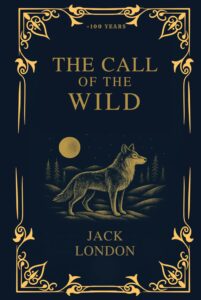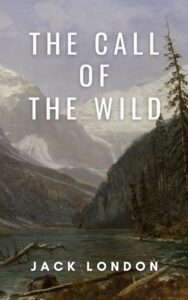Why The Call of the Wild Was Banned
When The Call of the Wild was first published in 1903, it was widely praised as a gripping adventure story. But it also found itself on banned book lists in different times and places. In some U.S. schools, it was challenged for its violent depictions of survival, animal cruelty, and the harsh realities of life in the wild. Some critics believed its scenes of brutality—both between animals and involving humans—were too graphic for young readers.
Outside the United States, the book faced even stronger opposition. It was banned in Italy and Yugoslavia during the 1920s and 1930s for being “too radical” and promoting rebellion against authority. In Nazi Germany, the novel was burned for its perceived socialist ideas and its celebration of the natural, untamed spirit, which ran against the regime’s ideals of control and obedience.
About the Author: Jack London
Jack London was born in 1876 in San Francisco and grew up in poverty. He worked as a laborer, sailor, and gold prospector before becoming one of the most popular authors of his time. His own experiences in the Klondike Gold Rush deeply influenced The Call of the Wild. London had a passion for adventure, a respect for nature, and a fascination with the struggle for survival.
Much of his work reflects his belief in the power of instinct and the law of the wild—where strength, endurance, and adaptability determine fate. London’s writing often challenged comfortable views of society, showing readers a world where civilization is fragile and primal instincts lie just beneath the surface.
Content and Themes of The Call of the Wild
The novel follows Buck, a domesticated dog stolen from his comfortable California home and sold into the brutal life of an Alaskan sled dog during the Klondike Gold Rush. Through hardship, cold, and constant danger, Buck learns to survive and eventually embrace his primal instincts.
As Buck adapts to the law of “kill or be killed,” he transforms from a pampered pet into a leader of the pack, guided by an ancient call deep within him. The story explores themes of survival, the pull of nature, and the idea that civilization is only a thin layer over something far more primal. It’s both a thrilling adventure and a meditation on the instinctual side of life.
Why the Book Still Matters Today
More than a century after it was written, The Call of the Wild still captures the imagination of readers. Its themes of resilience, freedom, and returning to one’s roots are timeless. Buck’s journey is both physical and spiritual—a reminder of the strength that lies in adaptation and the power of listening to our instincts.
The history of the book’s censorship shows how stories about freedom and the natural world can challenge political and social norms. Jack London’s classic remains not just a tale of adventure, but a celebration of the wild spirit that can’t be tamed.





